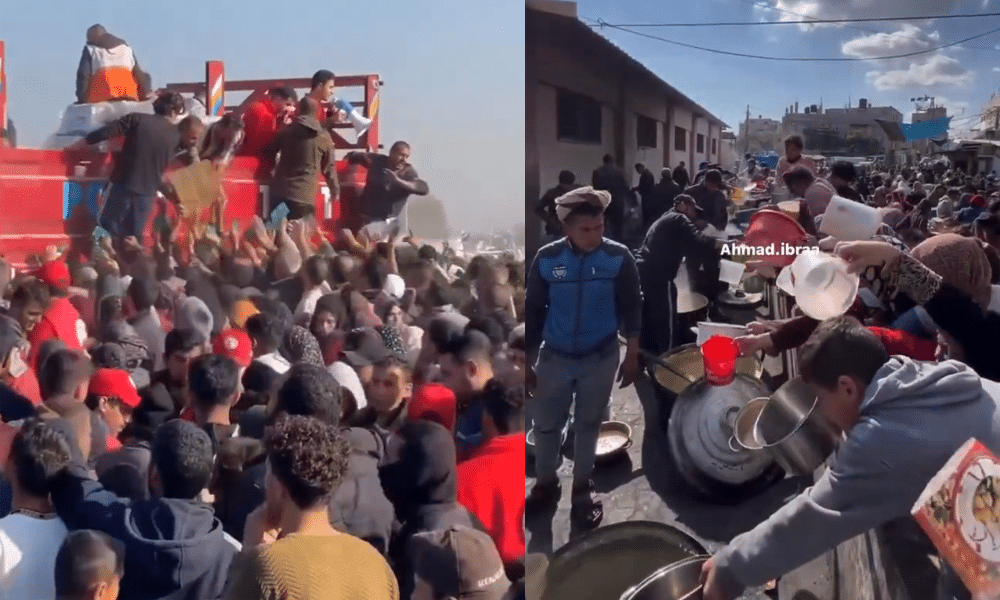A critical pause in funding to the United Nations Relief and Works Agency for Palestine Refugees in the Near East (UNRWA) has raised alarm over the potential exacerbation of the humanitarian crisis in Gaza. This development follows the suspension of contributions by Canada and the United States on Friday (26 Jan), reacting to claims that several UNRWA staff members were involved in the Hamas-led attacks on Israel on 7 October.
In a similar vein, the United Kingdom, Australia, Italy, Germany, the Netherlands, Switzerland, and Finland have echoed this action. UNRWA, a lifeline for the majority of Gaza’s population, employs a vast range of personnel, including teachers, nurses, and social support workers. These individuals play a vital role in maintaining the daily lives and safety of those displaced by Israeli airstrikes.
On Saturday, Philippe Lazzarini, the Commissioner-General of the agency, appealed to countries to resume their funding support.
UNRWA lifesaving assistance is about to end following countries decisions to cut their funding to the Agency.
Our humanitarian operation, on which 2 million people depend as a lifeline in Gaza, is collapsing. I am shocked such decisions are taken based on alleged behavior of a…
— Philippe Lazzarini (@UNLazzarini) January 27, 2024
He stressed in a statement, “before UNRWA is forced to suspend its humanitarian response. The lives of people in Gaza depend on this support and so does regional stability.”
Lazzarini expressed his astonishment at the suspension of funds following allegations against a few staff members. He highlighted that this action was taken despite UNRWA having already terminated the contracts of those involved and assigned the United Nations Office of Internal Oversight Services to conduct an independent investigation.
He, however, added, “Palestinians in Gaza did not need this additional collective punishment.”
Experts like Michael Bociurkiw, a Canadian global affairs analyst, and Rex Brynen, chair of the Middle East Studies program at McGill University, have voiced concerns about the implications of this funding halt. Brynen, in particular, highlighted the agency’s crucial role and the dire situation arising from the lack of resources.
The UNRWA responded to these allegations by dismissing the implicated employees and initiating an independent investigation. Philippe Lazzarini, the agency’s commissioner-general, has urgently called for the reinstatement of funding, emphasizing the dire consequences for Gaza’s population and regional stability.
The funding suspension coincides with a recent ruling by the International Court of Justice (ICJ), mandating Israel to take immediate measures for providing basic services and humanitarian assistance in Gaza. The Palestinian Foreign Ministry and the Palestine Liberation Organization (PLO) have condemned these actions and urged for a reversal of the funding decision.
Israeli Foreign Minister Israel Katz has advocated for replacing UNRWA with other agencies once the conflict subsides, alleging ties between the agency and Islamist militants in Gaza. However, Deputy UN spokesperson Farhan Haq has underscored UNRWA’s strong performance record.
The cessation of funds follows the ICJ’s 26 January ruling, which demanded measures from Israel to prevent genocide in its conflict with Hamas militants in Gaza. However, the court stopped short of ordering an immediate ceasefire.
UNRWA’s role has been crucial in sheltering and aiding people in Gaza, especially following the Israeli offensive after the 7 October attacks.
Secretary-General António Guterres, in a statement on Sunday (28 Jan), underscored that approximately two million individuals in Gaza rely on UNRWA for their daily essentials.
Guterres stated, “Of the 12 people implicated, nine were immediately identified and terminated by the Commissioner-General of UNRWA, Philippe Lazzarini; one is confirmed dead, and the identity of the two others is being clarified.”
He emphasized in his statement, “The abhorrent alleged acts of these staff members must have consequences.”
He added, “But the tens of thousands of men and women who work for UNRWA, many in some of the most dangerous situations for humanitarian workers, should not be penalized. The dire needs of the desperate populations they serve must be met.”

